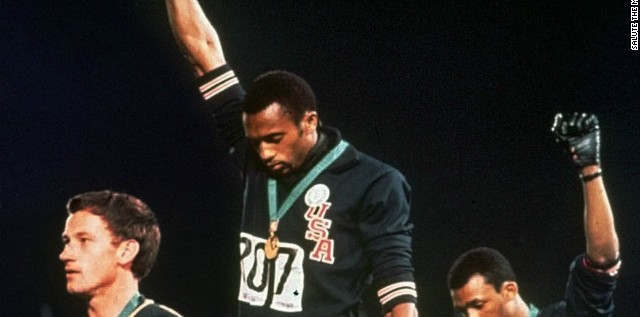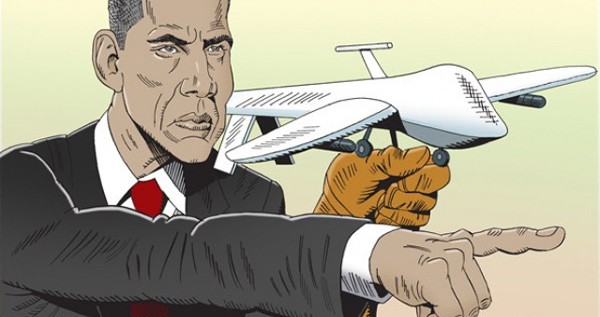The Forgotten Black Power Hero

It is perhaps the most iconic sports photograph ever taken.
Captured at the medal ceremony for the men’s 200 meters at the 1968 Mexico Olympics, U.S. sprinter Tommie Smith stands defiantly, head bowed, his black-gloved fist thrust into the thin air.
Behind him fellow American John Carlos joins with his own Black Power salute, an act of defiance aimed at highlighting the segregation and racism burning back in their homeland.
It was an act that scandalized the Olympics. Smith and Carlos were sent home in disgrace and banned from the Olympics for life. But they were treated as returning heroes by the black community for sacrificing their personal glory for the cause. History, too, has been kind to them.
Yet few know that the man standing in front of both of them, the Australian sprinter Peter Norman who shocked everyone by powering past Carlos and winning the silver medal, played his own, crucial role in sporting history.
On his left breast he wore a small badge that read: “Olympic Project for Human Rights” — an organization set up a year previously opposed to racism in sport. But while Smith and Carlos are now feted as human rights pioneers, the badge was enough to effectively end Norman’s career. He returned home to Australia a pariah, suffering unofficial sanction and ridicule as the Black Power salute’s forgotten man. He never ran in the Olympics again.
“As soon as he got home he was hated,” explains his nephew Matthew Norman, who has directed a new film — “Salute!” — about Peter’s life before and after the 1968 Olympics.
“A lot of people in America didn’t realize that Peter had a much bigger role to play. He was fifth (fastest) in the world, and his run is still a Commonwealth record today. And yet he didn’t go to Munich (1972 Olympics) because he played up. He would have won a gold.
“He suffered to the day he died.”
An obscure pick
Peter Norman grew up in a working-class district of Melbourne. As a youngster he couldn’t afford the kit to play Australian Rules Football, his favorite sport. But his father managed to borrow a secondhand pair of running spikes, and his talent for sprinting was quickly recognized. Yet Norman was still an obscure pick when the 28-year-old arrived in the high altitude of Mexico City. It was the first time he had run on an Olympic standard track, and he thrived in the thin air.
“I could feel my knees bouncing around my chin,” Norman said in “Salute!”
Peter Norman
“It lengthened my stride by about 4 inches!”
It was events off the track that had dominated the lead-up to the 1968 Olympics. In the U.S., the civil rights movement fought running battles with the police and army across America against segregation and racism. Both Martin Luther King Junior and Robert Kennedy had been assassinated and the Vietnam War was raging.
Meanwhile, in Mexico, hundreds of protesting students were massacred in the run-up to the Games. The regime covered up their deaths as the athletes arrived.
Australia too, was in the midst of racial strife. The country’s “White Australia” policy had provoked protests of its own. It put heavy restrictions on non-white immigration — and a raft of prejudicial laws against its indigenous aboriginal population, including a policy of taking Aboriginal children from their birth parents and handing them to white couples for adoption, a practice that continued until the 1970s.
Unexpected threat
Although Norman was a staunch anti-racism advocate, no one expected him to take a stand in Mexico. The Australian Olympic Committee had laid out just three rules for him to follow. The first was to repeat his qualification time before the Games.
“Rule number two: don’t finish last in any round,” Norman recalled.
“Third, and under no circumstances, don’t get beaten by a Pom (a British runner).”
Norman had previously been ignored by the U.S. team, who had assumed they’d win a clean sweep of medals in the 200 meters, but he burst on to their radar when he broke the Olympic record in one of the early heats.
Tommie Smith
“When I first saw Peter, I said, ‘Who’s this little white guy?’ ” Carlos told CNN.
He would soon regret the oversight. When the 200 meters final arrived, all eyes were on the U.S. duo. Smith was expected to win easily (“You wouldn’t be able to catch him on a motorbike,” was Norman’s assessment) but the speculation centered on what political gesture the American athletes might make on the podium.
The starting pistol was fired and Smith powered to gold. But out of nowhere Norman stormed down the last 50 meters, taking the line before a shocked Carlos. Norman’s time of 20 seconds flat would have won gold four years later at the Munich Olympics and at the Sydney Games in 2000.
A fateful decision
Smith and Carlos had already decided to make a statement on the podium. They were to wear black gloves. But Carlos left his at the Olympic village. It was Norman who suggested they should wear one each on alternate hands. Yet Norman had no means of making a protest of his own. So he asked a member of the U.S. rowing team for his “Olympic Project for Human Rights” badge, so that he could show solidarity.
“He came up to me and said, ‘Have you got one of those buttons, mate,’ ” said U.S. rower Paul Hoffman. “If a white Australian is going to ask me for an Olympic Project for Human Rights badge, then by God he would have one. I only had one, which was mine, so I took it off and gave it to him.”
The three men walked towards their destiny. The medals were handed out before the three turned towards the flags and the start of the Star Spangled Banner.
“I couldn’t see what was happening,” Norman said of that moment.
“I had known they had gone through with their plans when a voice in the crowd sang the American anthem but then faded to nothing. The stadium went quiet.”
The fallout was immediate for Smith and Carlos, who were sent home in disgrace. Norman was never given the chance to go a step closer. He was never picked to run in the Olympics again.
“I would have dearly loved to go to Munich (but) I’d earned the frowning eyes of the powers that be in track and field,” he said in “Salute!”
“I’d qualified for the 200 meters 13 times and 100 meters five times (but) they’d rather leave me home than have me over there (in Munich).”
Shunned in his own country?
Norman retired from athletics immed




